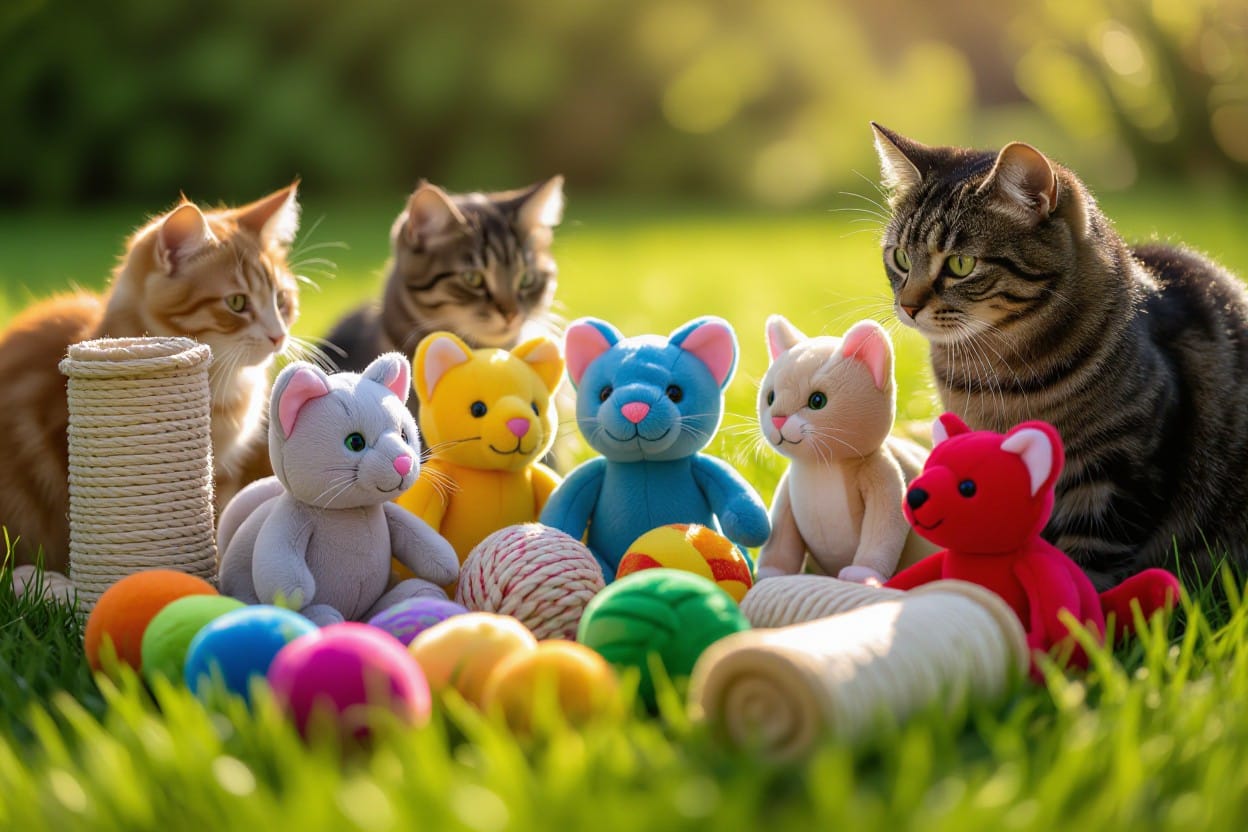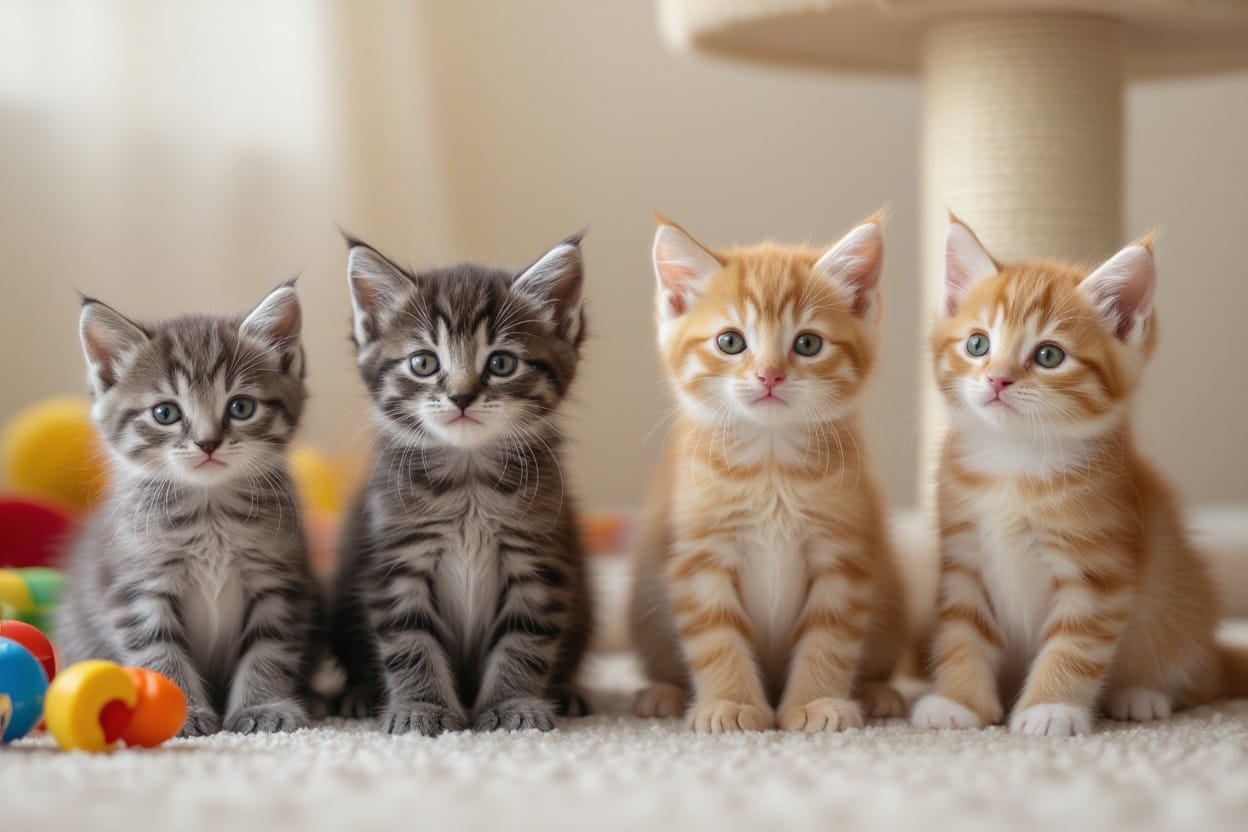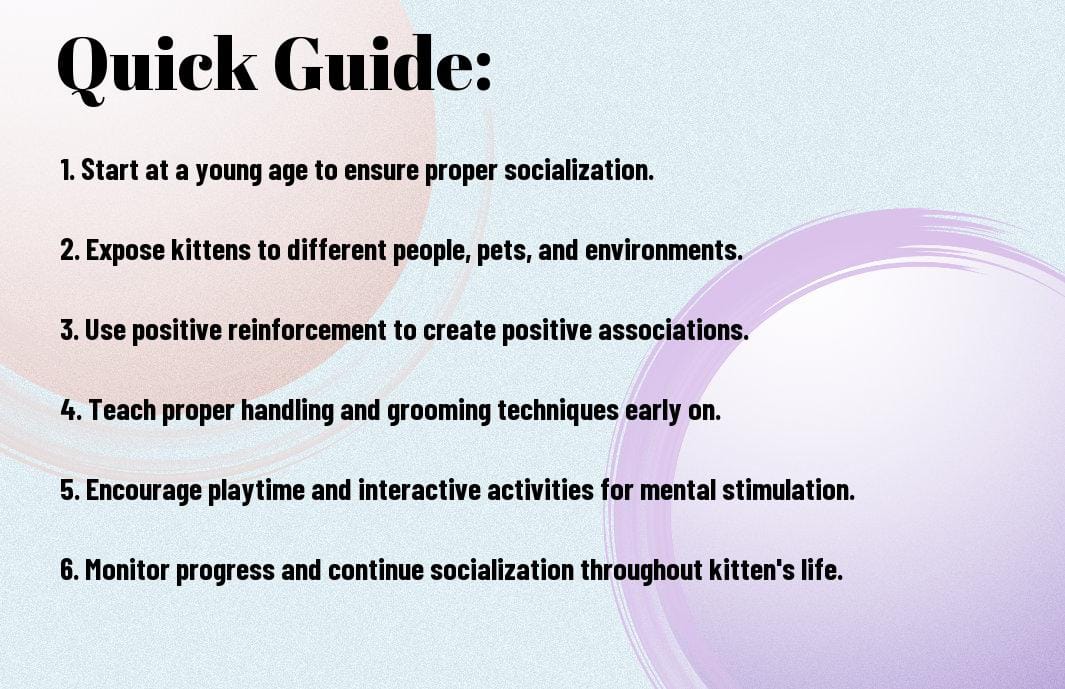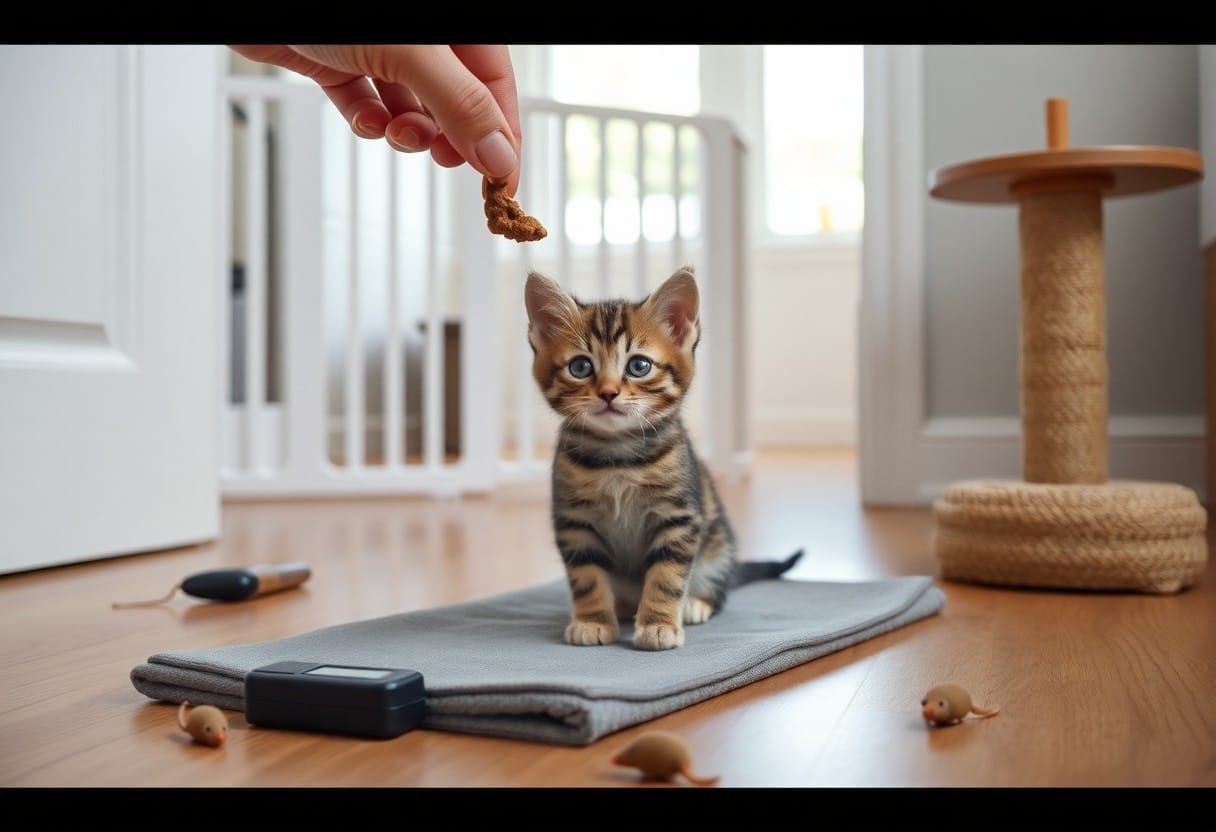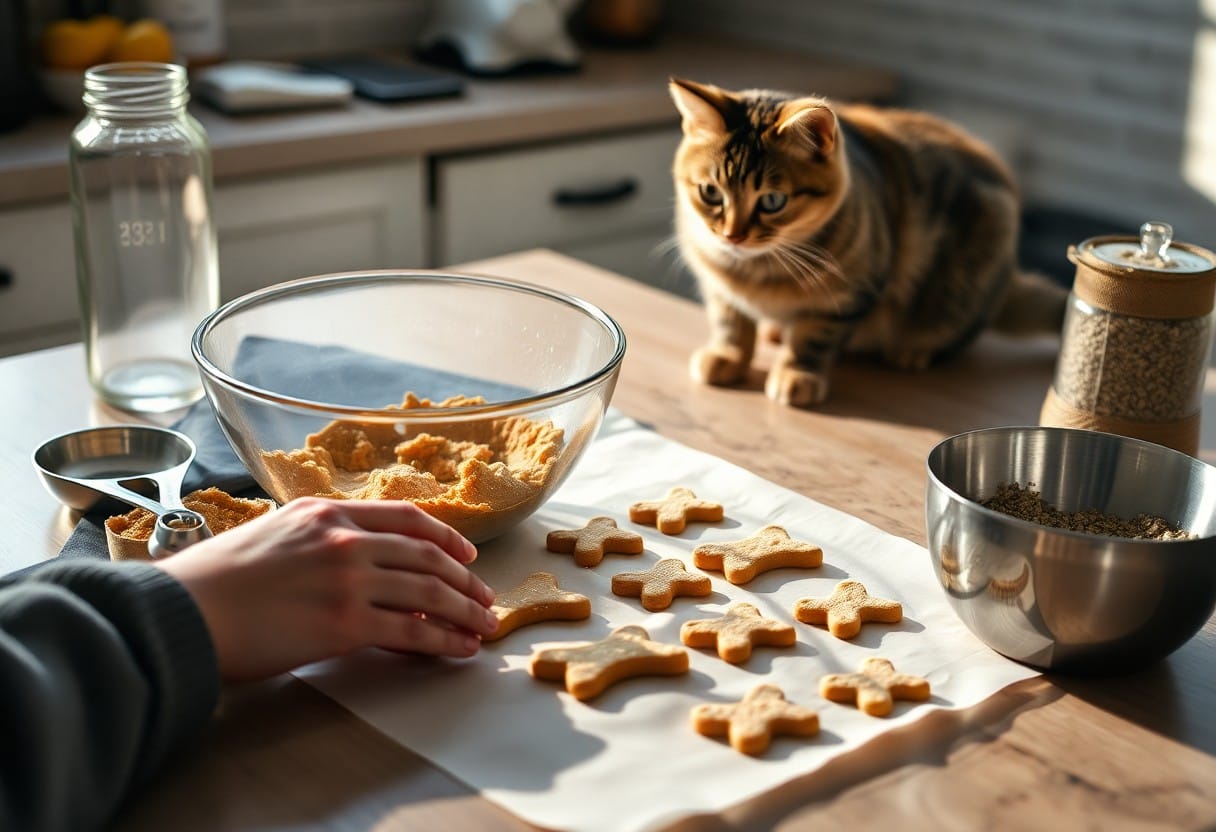It’s crucial to understand the significance of socialization in the early stages of a kitten’s life. Kitten play not only enhances their physical and mental well-being but also plays a vital role in their overall development. Socializing kittens through play helps them build confidence, develop important social skills, and form strong bonds with their human companions.

Fundamentals of Kitten Socialization
Clearly, socialization is a critical aspect of a kitten’s development. It lays the foundation for their future behavior, interactions with humans, and overall well-being. Through appropriate socialization, kittens can learn to be comfortable in various environments, build confidence, and develop important social skills.
Stages of Kitten Development
Kitten development is divided into several key stages, with the socialization window being most crucial between 2 to 7 weeks of age. This period is when kittens are most receptive to new experiences, making it an ideal time to introduce them to different sights, sounds, people, and animals. Failure to socialize kittens during this critical window can lead to behavioral issues, fearfulness, and difficulty adjusting to new situations later in life.
What is Socialization?
An integral part of kitten socialization is exposing them to positive experiences that help them build confidence and trust. This includes gentle handling, playtime, introductions to various stimuli, and interactions with different people and animals. Through positive socialization experiences, kittens learn to feel comfortable in different situations, making them more adaptable and friendly companions in the long run.
The Role of Play in Kitten Socialization
Types of Play and Their Purposes
The importance of play in kitten socialization cannot be overstated. Play is not just a form of entertainment for kittens but serves a vital role in their overall development. There are various types of play that kittens engage in, each with its own purposes and benefits.
- Interactive Play: Encourages bonding between kittens and their playmates, whether it’s other kittens, humans, or even toys. This type of play helps kittens learn social cues and boundaries.
- Solo Play: Allows kittens to develop their physical abilities and coordination. It also aids in building confidence and independence.
- Hunting Play: Mimics natural hunting behaviors, helping kittens sharpen their predatory instincts and skills.
- Object Play: Involves playing with toys or objects, which can stimulate mental activity and problem-solving skills in kittens.
- Exploratory Play: Involves investigating new environments, textures, and objects. This type of play is crucial for kittens to learn about their surroundings and build confidence.
Recognizing the types of play your kitten engages in can provide valuable insights into their development and behavior. Kitten play is not only enjoyable but also serves as a foundation for healthy socialization and growth.
The Impact of Play on Social Development
Socialization through play is imperative for kittens to learn how to interact with others and navigate their environment effectively. Engaging in play helps kittens develop crucial social skills, such as communication, cooperation, and conflict resolution.
Types of play also play a significant role in shaping a kitten’s personality and temperament. For example, kittens who engage in more interactive play may become more social and affectionate, while those who prefer solo play may exhibit more independent characteristics.

The Human-Kitten Bond
Unlike other animals, kittens have a unique ability to form strong bonds with their human companions. This bond is built on a foundation of trust, love, and companionship that is crucial for the well-being of both the kitten and the human.
How Humans Influence Kitten Behavior
To ensure a healthy and positive human-kitten bond, it is imperative for humans to understand the impact they have on a kitten’s behavior. Kittens learn a great deal from their human counterparts, including how to socialize, communicate, and behave in their environment. By providing a safe and stimulating environment, consistent training, and positive reinforcement, humans can shape a kitten’s behavior in a way that fosters a strong bond between the two.
Building a Strong Relationship Through Play
For kittens, play is not just a fun activity but also a crucial component of building a strong relationship with their human. Through interactive play sessions, kittens learn to trust and bond with their human companion. These play sessions also provide imperative physical and mental stimulation for the kitten, helping them develop vital skills and behaviors that will benefit them throughout their lives.
Plus, engaging in play with your kitten is not only beneficial for their development but also a wonderful way to strengthen your bond and create lasting memories together. It is a time for both you and your kitten to connect, have fun, and build a relationship based on mutual trust and affection.
Setting Up a Safe and Stimulating Environment
Essential Elements of Kitten Play Areas
Setting up a safe and stimulating environment for kittens to play is important for their socialization and development. Ensure the play area is free of any potential hazards such as small objects that could be swallowed, toxic plants, or areas where a kitten could get stuck. Providing scratching posts, interactive toys, tunnels, and perches can help keep kittens engaged and active.
Include soft bedding, hiding spots, and vertical space for climbing to cater to a kitten’s natural instincts. Keep the play area clean and secure, with easy access to food, water, and a litter box. By creating a well-equipped and safe play area, you can encourage healthy behaviors and interactions in kittens.
Introducing New Stimuli
An important aspect of socialization through kitten play is introducing new stimuli to help kittens become accustomed to different experiences and environments. Gradually exposing kittens to various sounds, textures, and scents can help them build confidence and reduce fear or anxiety in unfamiliar situations.
The key is to introduce new stimuli gradually and ensure that kittens feel safe and secure throughout the process. By providing positive reinforcement and a comforting environment, you can help kittens develop into well-adjusted and sociable felines.
Common Challenges in Kitten Socialization
Overcoming Shyness and Fear
Fear is a common challenge in kitten socialization, especially for rescued or shy kittens. These timid felines may hiss, hide, or even swat when approached. To overcome shyness and fear, it’s crucial to create a safe and welcoming environment for your kitten. Provide hiding spots, soft bedding, and stimulating toys to help them feel secure.
Slowly introduce positive experiences, such as gentle petting and tasty treats, to build trust. Patience is key, as it may take time for a shy kitten to come out of their shell. By consistently offering love and reassurance, you can help your kitten overcome their fears and become more confident in social situations.
Addressing Aggressive Play Behavior
To address aggressive play behavior in kittens, it’s necessary to establish boundaries early on. When a kitten starts to bite or scratch too hard during play, let out a sharp “ouch” to signal that the behavior is unacceptable. You can also redirect their attention to a toy to help them understand appropriate play.
It’s important to never encourage aggressive behavior, even in play. Providing plenty of interactive toys and regular playtime can help channel your kitten’s energy in a positive way. Consistency is key in addressing aggressive play behavior to ensure a well-socialized and well-mannered cat in the future.

Monitoring Progress and Adjusting Play Techniques
Not only is engaging in playtime with kittens a fun and adorable experience, but it also plays a crucial role in their social development. However, it’s important to monitor progress and adjust play techniques to ensure that kittens are reaching their socialization milestones effectively.
Recognizing Milestones in Kitten Socialization
The socialization process in kittens is a gradual one, and recognizing milestones along the way is vital. Some key indicators of successful socialization include kittens showing curiosity towards new experiences, interacting positively with humans and other animals, and displaying confident and playful behavior.
Adapting Play as Kittens Grow
For optimal social development, it’s crucial to adapt play techniques as kittens grow. As they mature, kittens’ play preferences and abilities will evolve, requiring adjustments in the type and intensity of play. Providing a variety of toys and activities, such as interactive toys, puzzle feeders, and scratching posts, can help keep kittens engaged and stimulated as they continue to develop their social skills.
Recognizing the nuanced changes in kittens’ behavior and adjusting play techniques accordingly can greatly enhance their socialization process and set them up for a lifetime of positive interactions with humans and other pets.
Summing up
Now, it is clear that socialization through kitten play is crucial for the development and well-being of young felines. Through interactive play with their littermates and human companions, kittens learn important skills such as communication, bonding, and appropriate behavior. This early socialization not only shapes a cat’s personality and temperament but also helps prevent behavioral issues later in life.
By engaging in kitten play, we can provide our furry friends with the necessary tools to navigate the world around them and build strong relationships with both humans and other animals. So next time you see a litter of kittens, remember the importance of socialization through play and the positive impact it can have on their overall happiness and quality of life.
FAQ
Q: Why is socialization through kitten play important for kittens?
A: Socialization through kitten play is crucial for kittens as it helps them develop important social skills, build confidence, and form bonds with their owners.
Q: At what age should kittens start engaging in socialization through play?
A: Kittens should start engaging in socialization through play as early as 2-3 weeks old to ensure they develop proper socialization skills and become well-adjusted adult cats.
Q: What are some benefits of socialization through kitten play?
A: Some benefits of socialization through kitten play include reducing fear and anxiety in new environments, promoting positive interactions with other pets and people, and encouraging physical and mental stimulation.
Q: How can I socialize my kitten through play effectively?
A: To socialize your kitten through play effectively, provide a variety of toys for mental and physical stimulation, engage in interactive play sessions daily, introduce your kitten to new environments gradually, and reward positive behaviors with treats or praise.
Q: What are some signs that my kitten may need more socialization through play?
A: Signs that your kitten may need more socialization through play include hiding, excessive fear or aggression, destructive behavior, and difficulty adjusting to new people or environments.
